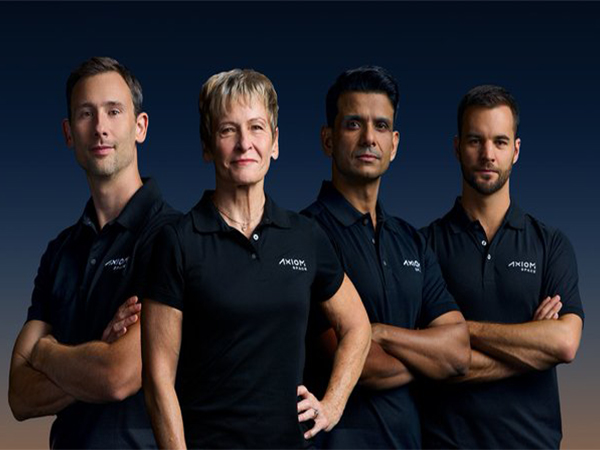Axiom Mission 4: Historic Launch Uniting Nations in Space Research
Axiom Mission 4, set to launch from Kennedy Space Centre, is the fourth private astronaut mission to the ISS. Led by Peggy Whitson, the mission includes astronauts from India, Poland, and Hungary. It's a significant milestone, marking the first government-sponsored spaceflights for these nations in over 40 years.

- Country:
- United States
NASA, Axiom Space, and SpaceX are collaborating to launch the fourth private astronaut mission, Axiom Mission 4, to the International Space Station. Scheduled for 2:31 a.m. EDT on June 25, the mission will lift off from NASA's Kennedy Space Centre in Florida. The SpaceX Dragon spacecraft, launched by the Falcon 9 rocket, will transport the crew to the ISS with an expected docking by 7 a.m. the following day.
The initial launch date was postponed from June 22 to allow NASA more time to assess station operations after repairs to the Zvezda module. This delay ensures the safety and readiness of the station's systems before adding new crew members. The mission is recognized for its global significance, as highlighted by the International Space Station's acknowledgment of its historical importance for India, Poland, and Hungary.
Commanded by Peggy Whitson, a former NASA astronaut and now Axiom Space's Director of Human Spaceflight, the crew includes Indian astronaut Shubhanshu Shukla, Polish astronaut Slawosz Uznanski-Wisniewski, and Hungarian astronaut Tibor Kapu. The Ax-4 mission represents a return to human spaceflight for India, Poland, and Hungary, signifying the nations' first government-sponsored missions in over four decades. This mission is pivotal in advancing their national space programs.
The Ax-4 mission is poised to enhance international cooperation in space exploration, involving 60 scientific studies conducted by diverse stakeholders across 31 countries, including Saudi Arabia, Brazil, and the UAE. The mission underscores the potential of microgravity research to contribute to significant advancements in human and material sciences, thereby strengthening the foundation of future space exploration.
With scientific portfolios led by major spacefaring nations, the mission aims to foster participation and showcase the benefits of international collaboration in space research. The findings are expected to amplify global knowledge in fields such as Earth observation and biological research, highlighting the exploratory capabilities of India, Poland, and Hungary. (ANI)
(With inputs from agencies.)










